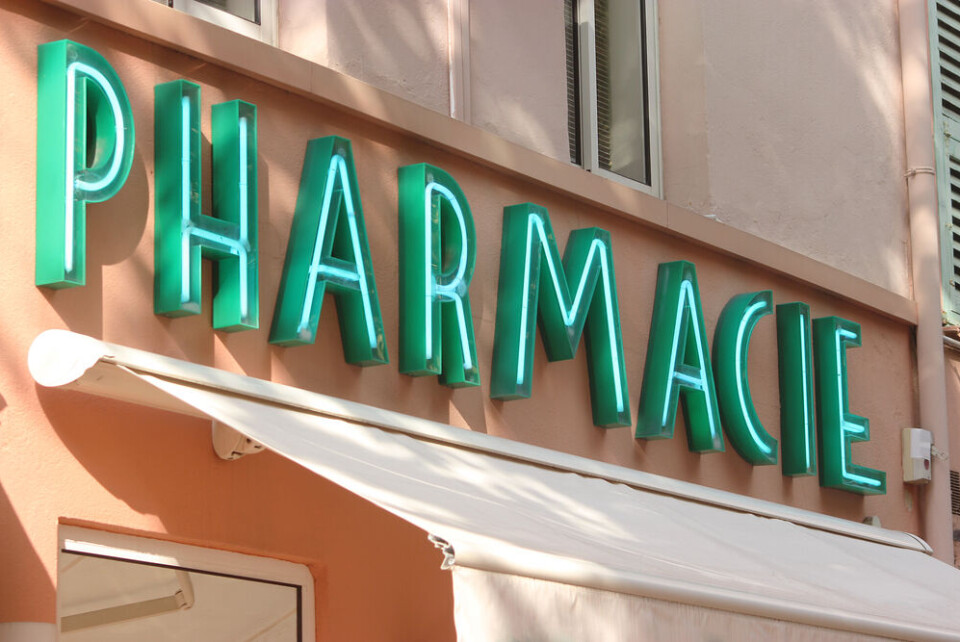-
Hospital fees set to increase in France: how will patients be affected?
Plans to save €400 million from social security spending targets several flat fees
-
New pink number plates in France lead to more police road checks
The plates are designed to enhance visibility and deter fraud
-
Alder pollen spike leads to warnings across most of France
Parts of the south-west at highest risk. Cypress pollen is also present along French Riviera
French pharmacists to offer biosimilar medicines: What does it mean?
How does ‘biosimilar’ differ from ‘generic’ and which medicines are included in the new decree?

Pharmacists in France can now give ‘biosimilar’ medicines to patients for some prescriptions after France authorised the practice – but this is not the same as ‘generic’ equivalents. We explain.
What is now allowed?
Pharmacists in France are now authorised to give medicines that are considered to be ‘biosimilar’ to some specific drugs prescribed, after a decree in the government’s legislative publication, the Journal officiel, from April 14.
Biosimilar drugs are effectively the same medication (in terms of content and active ingredients) as the original brand, but are generally cheaper. There may be some differences in ingredients but they are intended to be used for the exact same treatment as the more expensive brand.
They are not the same as ‘generic’ drugs, which are non-branded, exact chemical copies of the original drug. For example, Doliprane is a paracetamol painkiller brand, but generic versions are simply labelled as the main ingredient, ‘paracetamol’, without a brand.
In contrast, biosimilar drugs are copies that are very similar, but not always identical, to treatments that are known as ‘biological’. They have their own brand, and are often prescribed for the treatment of conditions such as diabetes, cancer, infertility, or osteoporosis.
Are there rules on which drugs can be considered biosimilar?
Yes. For a drug to be considered a genuine substitute, it must have been “authorised in Europe for eight years and its patent must have fallen into the public domain”, says medication safety agency l’Agence nationale de sécurité du médicament et des produits de santé (ANSM).
Which drugs are now able to be replaced with biosimilar equivalents?
A total of 16 drugs are included in the new decree. The ANSM website has a list here, with details of which are also reimbursed by Assurance maladie.
Not all biosimilar drugs are reimbursed to the same level, or at all, by Assurance maladie.
Some biosimilar drugs are strictly only for use in a hospital setting, such as Avastin (and its biosimilar copies), which are used in the case of bronchial cancer.
To prescribe biosimilar drugs outside of hospital, doctors (and now pharmacists) must respect certain criteria. For example, the drugs must be featured on the list of acceptable replacements from Assurance maladie.
The list of biosimilar medicines available to replace the reference drug is limited and clearly laid out. For example, they can offer biosimilar equivalents to the drugs Neupogen and Neulasta.
Neupogen is prescribed for the treatment of persistent neutropenia (a lack of white blood cells) in patients with advanced HIV infection.
Neulasta relieves neutropenia in cancer patients.
These two reference biomedicines can be substituted respectively by four and six specific biosimilar medicines reimbursed by Assurance maladie: Accofil, Nivestim, Tevagrastim and Zarzio for Neupogen; and Cegfila, Fulphila, Nyvepria, Pelgraz, Pelmeg, and Ziextenzo for Neulasta.
Taking into account biosimilar drugs that are not reimbursed, and those that are only allowed to be used in hospital settings, only around a dozen drugs are permitted to be replaced by biosimilars in pharmacies.
Some also require a prescription from a hospital, rather than a GP, in order for treatment to begin, while some can be prescribed by a specialist only (such as Gonal-f, which is used to treat infertility).
Why is this now allowed?
Biosimilar drugs can save the state significant sums of money, as they can be up to 30% cheaper than their leading branded equivalents.
A July 2021 report from the Caisse nationale d’Assurance maladie (CNAM) highlighted that spending on rheumatoid arthritis (-46%) and ankylosing spondylitis (-56%) had decreased consistently since 2015.
This is due to the arrival, over the past seven years, of several biosimilar medications to Remicade, which is the main reference drug prescribed to patients suffering from these diseases.
It comes after pharmacists were given authorisation, in July last year (2021), to renew and adjust repeat prescriptions without requiring patients to visit the doctor again.
Related articles
Pharmacists in France allowed to renew and adjust repeat prescriptions
French pharmacists now able to renew some doctor's prescriptions
French pharmacist accused of €18million Covid test fraud
























